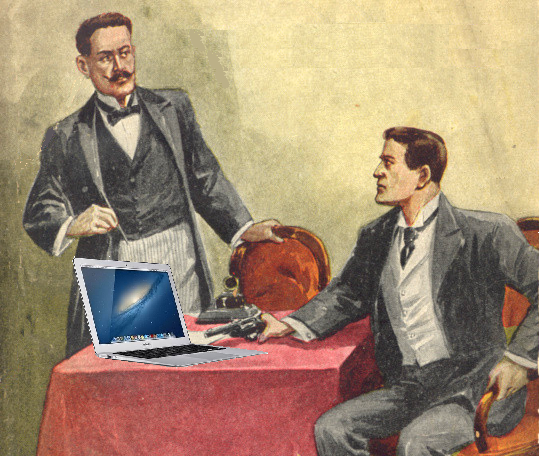| One thing is certain about technology: It has no reverse gear. Invent something and it won’t be un-invented. We can’t rid the planet of cars, nuclear weapons or computers. All we can do is either engineer them differently or decide on the best ways to use them. In other words, complain all you want about modern technology, but it will be of no use. The real key the future lies in society’s collective sense of morality and ethics. That’s an admittedly discomforting thought in an age of rapid technological change. |
| | The Pew Research Center and Elon University’s Imaging and Internet Center have just published a compilation of opinions from 1,150 experts responding to the question, “Over the next decade, how will changes in digital life impact people’s overall well-being physically and mentally?” The question has a tinge of the ridiculous to it. Go back 10 years. Sure, we had the Internet, but chances are you didn’t have a true smartphone, in the modern sense. Steve Jobs had barely unveiled the iPhone. Twitter was in its infancy. We simply don’t know what changes in digital life will look like 10 years from now. But the question is valid in that it cuts to the core of the collective morals of everyone on planet earth right now. How would you answer? Will Alexa’s evolution into a meaningful personal assistant, combined with her new best friend — your self-driving car — bless society more than the cold and growing disconnection from human interaction, the manipulations of social media and the growing threats of cyber attacks and identity theft will curse it? Will the better angels of our nature find ways to secure us against the criminals and opportunists? And what of the dangers inherent to some technologies? The experts were split. The largest group, 47 percent, was optimistic, predicting digital technology will help more than harm, while 32 percent held the opposite view. The rest felt the mix between good and bad would remain about what it is today. The negative group might have included people like Psychology professor Jean Twenge, whose years of research on the differences between generations took a startling turn in recent years, after all those smartphones came along. Now she is finding far more mental illness and suicide among young people. “It’s not an exaggeration to describe iGen (her name for the emerging generation) as being on the brink of the worst mental-health crisis in decades,” she wrote recently in The Atlantic. “Much of this deterioration can be traced to their phones.” Her work is important and deserves serious attention. The real question for your view of the future, however, is whether you believe humans will find ways to counter this troubling trend through technology, because what we have cannot be un-invented. This isn’t the first time the world has confront a crisis led by technology. Fifty-seven years ago next month, FCC Chairman Newton Minow famously described television’s programming as a “vast wasteland.” He framed this as a threat to democracy that, despite obvious differences, isn’t too far from how many today worry the social media landscape is fueling political cynicism and apathy. And yet in 2011, Minow told Adage.com that, while he felt the wasteland had, in the intervening years, become “vaster, certainly,” it had improved in that modern consumers have many more choices. Those choices, of course, become liberating only if people choose wisely. It’s good that the largest segment of experts in the Pew report believes digital advances will make life better. Optimism about technology has served the world well over the last two centuries or so. Ultimately, however, the real answer lies in how well religious, political and cultural leaders steer behavior and, most importantly, how parents instill values. It lies in our collective concern about young lives being hurt by the isolation of their phones. No one today knows for certain what the next 10 years holds. What we need to know is what we value, and how we can use those values to promote good outcomes. Without a reverse gear, we have little choice but to ride technology forward with hope and resolve. |


 RSS Feed
RSS Feed

